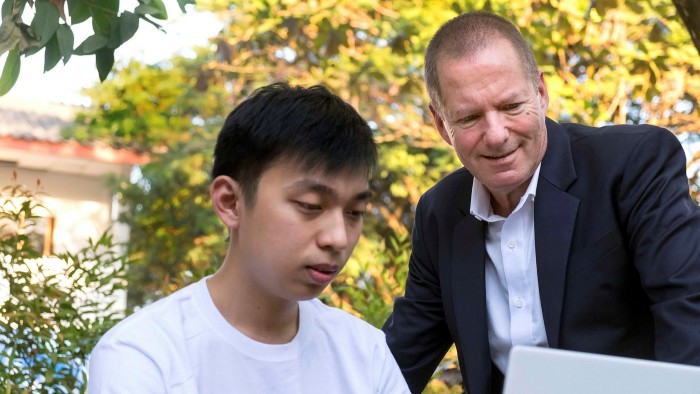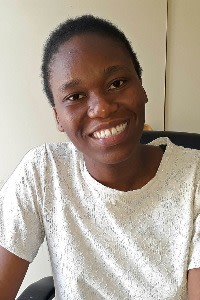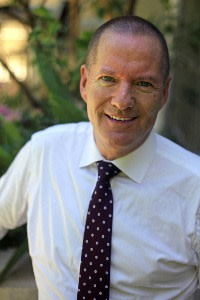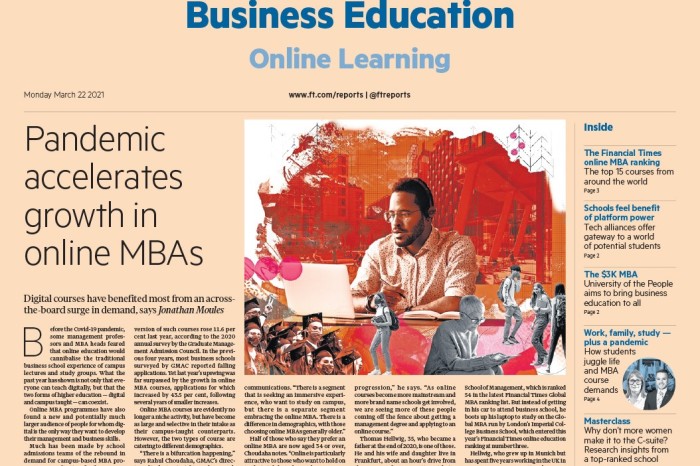University of the People goes all out for accessible MBAs

Roula Khalaf, Editor of the FT, selects her favourite stories in this weekly newsletter.
Myoga Molisho has lived a hand-to-mouth existence in the decade since she fled the Democratic Republic of Congo, to seek asylum in South Africa. But that has not stopped her dreaming of going into business. Last year, she took a bold step towards realising that ambition: she began studying for an MBA.
“I truly enjoy working with numbers, and managing and administering,” she says. “Doing an MBA will deepen my knowledge about the management of the business world and I can then even open my own business.”
She is one of nearly 60,000 students — most from low-income backgrounds, displaced by poverty or war and living precariously around the world — who have signed up for online degrees with the University of the People (UoPeople). It was set up in 2009, and now has almost 9,000 on its MBA courses alone.
Long before the Covid-19 pandemic forced its counterparts to put teaching online, UoPeople was deploying exclusively digital approaches. It aims to make higher education as affordable and accessible as possible to people who are typically left behind — from those on the poverty line in the US, to women in the Arab world, and victims of conflict and natural disaster globally.

At an initial glance, the UoPeople MBA resembles its competitors, with core courses in accounting, finance, marketing, information systems, operations management, organisational theory, strategy and business ethics. Alongside those are several electives and a “capstone” practical project to apply what students have learnt.
Yet, while most MBA programmes cost tens of thousands of dollars, UoPeople charges nothing for tuition, has no campus or buildings, and provides all its textbooks and other materials online. Students pay only for assessments at the end of each course, resulting in direct costs to complete an MBA of about $3,000 — and still less for those eligible for its scholarships.
Students learn “asynchronously” at their own time and pace, typically spending 15-20 hours a week on courses, with assigned reading and tests. While each participant is allocated a programme adviser, and a course instructor to oversee their work, the focus is on online study, discussion and peer-to-peer learning — including coursework primarily assessed by classmates.
“When I talk to our students, in the first term what they hate most is peer-to-peer learning — they say ‘who are you to give me grades?’” says Shai Reshef, the educational entrepreneur who founded UoPeople. “By the second year, they rank that as the best thing. You need to master the material, to interact and to accept criticism. That’s the 21st-century workplace.”
Maximum access
Reshef has mobilised volunteer advisers and teachers, external funders, US accreditation agencies and academic partners — including the University of California, Berkeley, the University of Edinburgh and, most recently, McGill University in Montreal — which recognise its credits and accept its transfer students. Back-office and digital operations are based in India and the West Bank. “Everywhere that technology can replace humans, we use it,” Reshef says. “The idea is to open the gate as wide as possible and give anyone a chance.”
Those on UoPeople’s undergraduate courses — which focus on the practical subjects of business, education, computer science and health — must have completed high school. Participants on its professional masters programmes for business and education are required to have a first degree. With many Syrian refugees demanding access, it recently also launched tuition in Arabic as a stepping stone to learning English and shifting to its core offerings.

Russell Winer, professor of marketing at New York University’s Stern School of Business, who has volunteered as UoPeople’s dean of business administration since 2009, says: “I was particularly intrigued by the mission of giving high-quality education to people in different countries who would not otherwise have access.”

See the full 2021 Financial Times Online MBA directory as well as the whole report on Monday March 22
Compared with more traditional MBAs, he concedes that the experience is more limited. “If a student came to me and said ‘Should I go to Stern, Columbia, Wharton or UoPeople?’ of course I’d say one of the former. If you could get a scholarship and go to a top university, go for it. But most of our students don’t have that kind of choice.”
Some students have complained about the hands-off approach, the limitations in materials provided, and the assessment methods. Yet Winnie Priscilla Nalubowa, a Ugandan who completed her MBA last year, rejects such criticisms. She says UoPeople provided an affordable way to study while working and, although she has not received a promotion or pay rise since graduating, “it was what I was hoping for”.
Rebecca Jaremko Bromwich, diversity and inclusion manager at Gowling WLG, a Canada-based law firm, opted for UoPeople’s MBA after degrees from Queen’s and Carleton, where she teaches part time, and courses at Harvard Law School. “I have a lot of credentials from a lot of places,” she says. “I don’t need the university brand. I just want to learn the stuff. The value is in the education and the people taking the courses. It’s about what is being taught.”
Comments